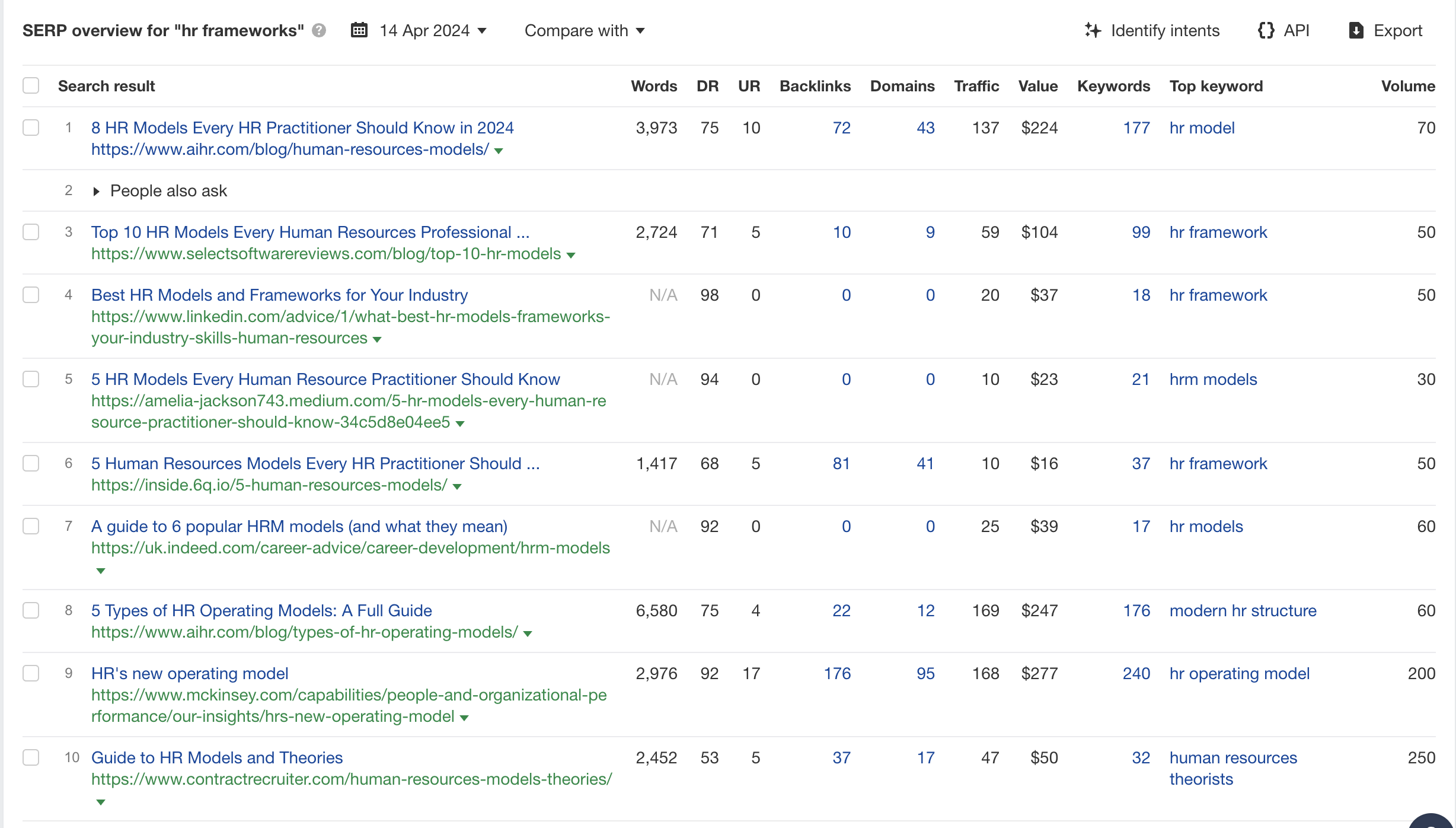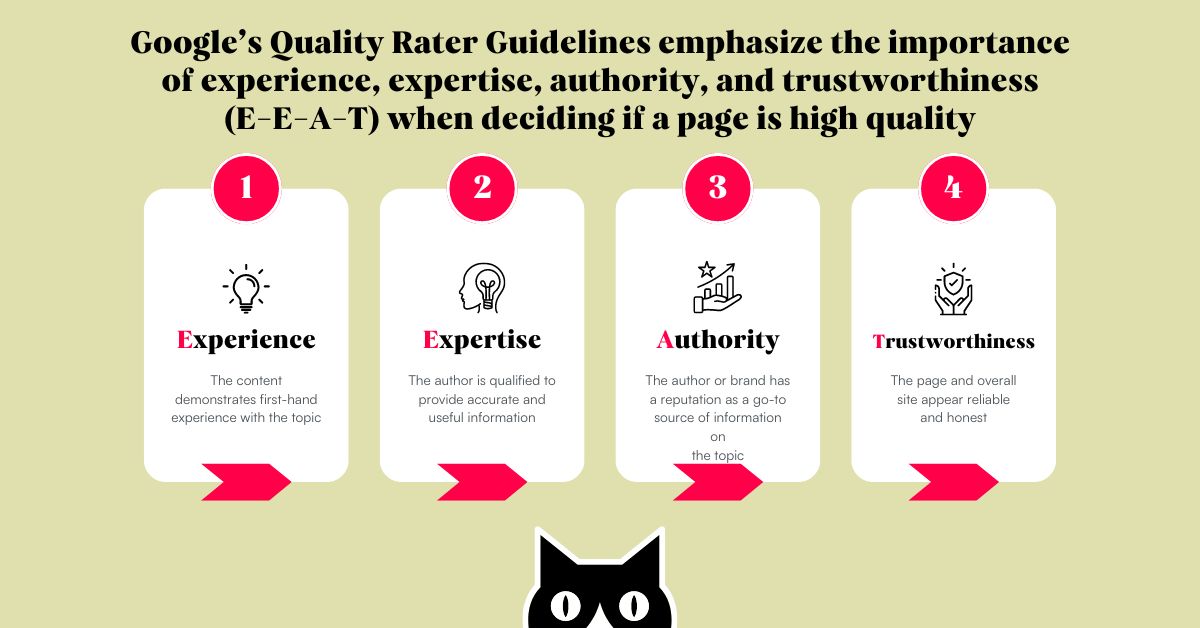Let’s talk about Taylor Swift for a second. You don’t need to be a diehard Swiftie to appreciate her ability to release record-breaking albums and make a ton of money. Her secret?
Probably a very expensive PR team. But also, Taylor writes about what she knows (dating and heartbreak) and has a deep understanding of her audience (romantics). Oh, and she’s constantly releasing music. If pop singles were SEO blogs, she’d be the queen of topical authority.
Like Taylor’s latest album, topical authority is trending—ever since Google confirmed that content with high topical authority is rewarded with higher rankings and increased traffic. Now, a good content strategy has three key ingredients:
- Topics that are relevant to your industry and your niche
- Content that captures your audience and speaks to their needs
- The ability to publish plenty of content over time
Building topical authority using SEO techniques will help you gain visibility for your brand, win backlinks, and make more money from organic traffic. This article will show you how.
What is topical authority?
In SEO, topical authority is a measure of trustworthiness and relevance. If your website has high topical authority, it’s considered a credible source of information on a specific subject area—which means you could rank higher and get more traffic for pages on those topics.
Think of it like this: If Taylor Swift stopped singing about love and started singing about L.A. gang culture, she’d lose all credibility pretty fast. (That’s the last time I reference Taymerica, promise.)
Hold on. Isn’t that domain authority? Almost, but it’s topic-specific. That means even a website with low overall domain authority can outrank established sites with strong topical authority. Later, we’ll get into how to identify topics and create authoritative content.
Why is topical authority important for SEO?
If you’ve tried search engine optimization and not seen great results—despite following SEO best practices—it could be that you haven’t established your credibility as a source on a particular topic yet.
When compared with low topical authority content, articles with high topical authority get organic search visibility and organic traffic faster—as found in research by Graphite.
So, when done right, topical authority will bring more traffic to your site and even help you outrank bigger brands that only touch on your niche. Not only that, but it’s one of the faster ways to gain visibility in the otherwise long game of SEO.
One of the most commonly cited downsides of SEO is that it takes a long time to see results. The findings from [Graphite’s] study suggest that prioritizing topics by topical authority can be a powerful way to accelerate time to impact.” — José Luis Paredes and Gregory Druck in Graphite’s report on topical authority
Let’s take a quick look at an example on Ahrefs.

It looks like Leapsome already has some topic authority on performance management, with keywords like “performance review questions” and “performance review samples” bringing traffic to the site.
Choose three to five topics to start with and make sure they’re relevant to your brand. Never choose random topics just because they’re easy to rank for. This will only harm your topical authority. Plus, if your topics are closely related to your brand there’ll be more conversion opportunities for your site.
Pro tip: When we talk about topics, we mean broad keywords made up of only one or two words. They’re typically more competitive and difficult to rank for. That’s OK, because you’re also going to explore subtopics that are easier to target.
2. Develop a link-building strategy
Structuring your content around related topics and subtopics will help you develop an effective link-building strategy. In turn, this will improve the user experience (UX) and crawl efficiency of your site.
Let’s say you’ve chosen three core topics including:
- Performance management
- Employee engagement
- Recruitment and talent acquisition
These are the central pillars of your content strategy, which showcase your brand’s areas of expertise.
Cornerstone pages
For each topic, you can create a cornerstone page. These pages are usually long, informational, and provide a complete overview of the topic. But they focus on providing breadth over depth.
Supporting pages
Within each topic, there could be hundreds of longtail keywords that are less competitive, like “how to conduct a performance review”. Each one is a potential subtopic where you can demonstrate first-hand experience. These supporting pages provide more topic depth than cornerstone pages.
“By targeting broader keywords with cornerstone pages and long tail keywords with supporting pages, you can rank for a variety of keywords and draw in more traffic” — Jared Bauman, Co-founder and CEO at 201 Creative
Internal linking
Every supporting page should link back to the relevant cornerstone page and a money page. This shows crawlers that each piece of content is relevant to your overall topic authority. It also keeps your content strategy laser-focused on producing pages that relate to the brand.
Anchor text: The anchor text (clickable words) used to backlink your content can reinforce what topics you cover. You can’t control how other sources backlink your pages, but you should aim to use accurate anchor text on your own pages. Try using primary or secondary keywords from the linked page as anchor text. This will also help the searcher discover interesting pages across your site by pointing them towards relevant content.
3. Produce high quality, unique content
Companies make two mistakes when they first start publishing content:
- Writing low-quality, generic content for random keywords
- Only writing about their business and brand
The problem with the first approach is that it doesn’t help you build topical authority because your page won’t seem like a trusted source of information. And the second approach doesn’t really interest your customer. These pages will only get found through branded search queries, limiting how much visibility they can draw for your brand.
Google’s Quality Rater Guidelines emphasize the importance of experience, expertise, authority, and trustworthiness (E-E-A-T). E-E-A-T isn’t exactly part of the algorithm, but it is how Google determines quality, which could impact your page’s performance.

If you use E-E-A-T as your north star, and create content that’s interesting and actionable, it’ll build topical authority in the eyes of your readers. That means more time spent exploring your website, social shares, and backlinks—which is all topical authority in the eyes of the algorithm.
To demonstrate authority, your content should:
- Solve problems
- Use expert quotes and interviews
- Offer a strong point of view
All that to say; great content is created with the user in mind. But I’m not asking you to throw SEO techniques out with the bathwater. “You should care about the user for your business’s sake, [but] some old ‘tactics’ that many SEOs and Google itself want to declare dead actually still work really well,” says Maeva Cifuentes, CEO at Flying Cat.
Maeva recommends:
- Including the primary keyword in the title, H1, and 1 or 2 subheadings
- Submitting the page in GSC once published or updated
- Adding secondary keywords and semantically related terms (without keyword stuffing)
4. Build digital PR into your SEO strategy
Traditionally, SEO focuses on publishing high traffic content that links to your product pages (a.k.a the money pages). Some people even buy backlinks, but that’s a slippery slope. You may end up with low-quality, spammy backlinks or even being penalized with low rankings.
Digital PR builds authority by improving your brand presence and getting high-quality backlinks without buying them. Most digital PR tactics rely on having a very proactive person on your team who’s responsible for networking and nurturing relationships with influential people and publications in your industry.
These connections will be influential as you:
- Create shareable content and get it seen online. Infographics, LinkedIn carousels, and data visualizations are easy to share on social media and will gain traction if they’re highly relevant to your audience.
- Publish press releases with relevant links to your website. Press releases can be sent to publishers and influencers in your industry to generate interest and backlinks.
- Feature as a guest and subject matter expert (SME). Whether it’s podcasts, webinars, or guest-posting on industry-relevant websites, this is a good way to build authority for specific authors and leaders in your company.
Joe Robinson, our Head of SEO, also recommends publishing primary research. “B2B companies have loads and loads of data about their customers,” he explains. “This could be anonymized and published as original research to build authority and get press mentions on industry sites.” Once you’ve got a strong report, you can also publish content exploring its findings.
Whenever you get mentioned by reputable sources in your industry, you gain proof that builds authority for your website. You can add a “Trusted by” section to any landing page with the logos of the organizations that have mentioned your product. You can also directly quote those sources on your website and link to the articles where you’ve been featured.
Need a quick win? As you publish content on your site, be sure to name the author. It helps if this is someone at your company with relevant experience (just like me writing this article for Flying Cat). Every author on your site should have an author page or bio that links to all the content they’ve written and showcases whatever first-hand experience or expertise they have in the topic.
You can also use the og:same_as meta tag to link author pages to a LinkedIn page or personal website. That way, you’re explicitly providing the search engine with signals of authority that could help improve content visibility.
Get support with building topical authority
It’s never too late to start building topical authority for your brand, but it will take time to do it successfully. Check your website traffic monthly to make sure visits are increasing. Over time, you should see an uptick in traffic if you:
- Create a topical map showing how cornerstone pages (for broad, relevant topics) and supporting pages (for all the in-depth subtopics) link together
- Produce high-quality, expert-backed content
- Use a logical linking strategy and add author pages to your site
- Invest in digital PR
- Publish a lot of high-quality content over time
If your existing pages are ranking at all, there’s always potential for growth. If they’re not, you might have an issue with your site and need SEO consultancy services from an agency with expertise in technical SEO. Whether you need advice on your SEO strategy or want to outsource the whole content creation process, Flying Cat is here to help. Book a call.
Frequently asked questions about topical authority
What is a topical authority map?
A topical authority map is a visual representation of the topics and subtopics your brand should demonstrate expertise in. Creating this map will help guide your content strategy and meet your goals of becoming a trusted source of information on certain topics. In turn, this can improve your website’s visibility.
Your map should begin with three to five broad topics that are highly relevant to your brand and core product pillars (e.g. SEO). Then, you can add a variety of subtopics using related longtail keywords (e.g. SEO KPI template). You may also find it useful to map out how these subtopics link to your money pages.
Do backlinks play a role in establishing topical authority?
Yes, backlinks are fundamental to establishing topical authority! High quality backlinks from authoritative, topically-relevant websites send strong signals to search engines about what topic your content covers and how useful it is. The emphasis here is on quality, however, as just getting loads of backlinks isn’t enough to build topical authority.
